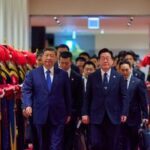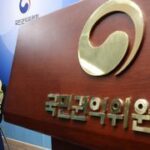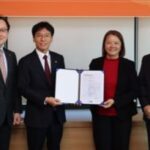
▲ Elon Musk, CEO of Tesla. Photo: Newsis
The automotive industry and investors are focusing on news that U.S. electric car manufacturer Tesla has secured a basis for launching its Full Self-Driving (FSD) software in China.
On April 29th, Tesla’s stock price closed at $194.05 per share, a 15.31% increase from the previous trading day. This is the most significant increase since March 2021, and the company’s market capitalization rose by about $100 billion in a single day, moving from 15th to 10th place among U.S. companies.
However, the next day, April 30th (local time), the stock price fell 5.55% to close at $183.28, reversing the upward trend. It also fell slightly, by 1.79%, on May 1st.
The fluctuation in Tesla’s stock price is due to conflicting views on the launch of FSD in China.
Tesla launched FSD in the U.S. four years ago but couldn’t do so in China due to regulations. However, recent reports suggest that Elon Musk, Tesla’s CEO, has overcome these regulatory hurdles during his visit to China.
According to multiple foreign media outlets, including the Wall Street Journal (WSJ), China has tentatively approved the plan, and Tesla is expected to be able to lift restrictions on driving and parking on public roads after receiving a suitable rating in China’s data security inspection.
Additionally, Tesla has reportedly signed a contract with Chinese portal company Baidu to use its map creation and navigation technology for FSD, sparking speculation that Tesla will be able to utilize Baidu’s service license, which is necessary for autonomous driving systems in China.
However, some pessimistic views are also emerging, such as the analysis team at investment advisory firm Evercore ISI, which believes that it will be difficult for Tesla to receive FSD approval in China ultimately, and even if it does, the sales revenue will not be significant.
An industry insider stated, “In China, a map creation license is required to apply an autonomous driving system,” and “foreign companies need to partner with a Chinese company that holds such a license, so it seems that Tesla will continue to cooperate with Baidu for FSD.”
Meanwhile, analysts suggest that Tesla’s entry into China could also positively impact the domestic secondary battery market.
Kim Ji Won, a researcher at KB Securities, said, “Tesla, which had been marginalized among the Magnificent 7 (M7: Apple Inc., Amazon.com, Alphabet, Microsoft Corporation, Meta Platforms, Inc. platforms, Tesla, and Nvidia), is showing strength with the momentum of fully autonomous driving in China, which is expected to impact domestic secondary battery stocks.”
However, some also believe that a significant rebound will only appear in the second half of this year due to factors such as the U.S. presidential election.
Lee An Na, a researcher at Yuanta Securities Korea, said, “A significant rebound in domestic secondary batteries is expected in the fourth quarter,” and “although the demand from GM and Tesla is expected to expand significantly, there is a high possibility of stock price noise due to the U.S. presidential election scheduled for November.”















Most Commented